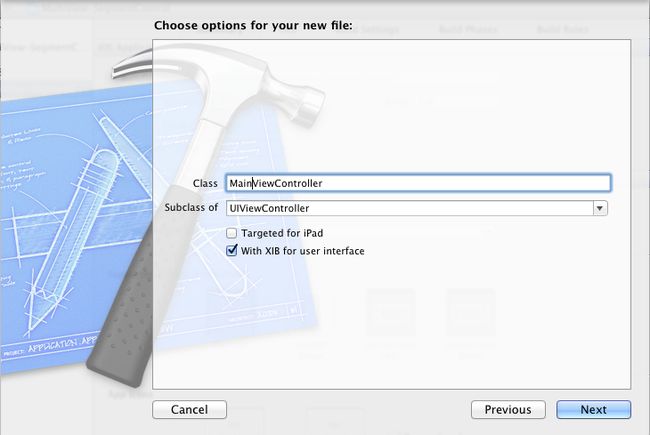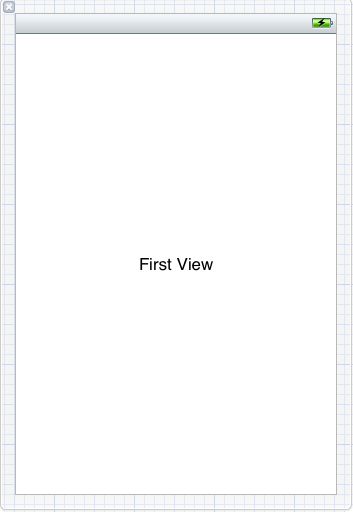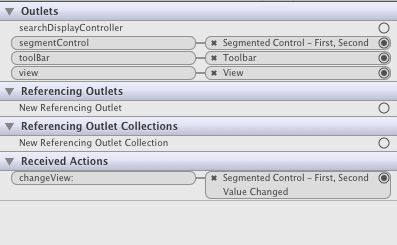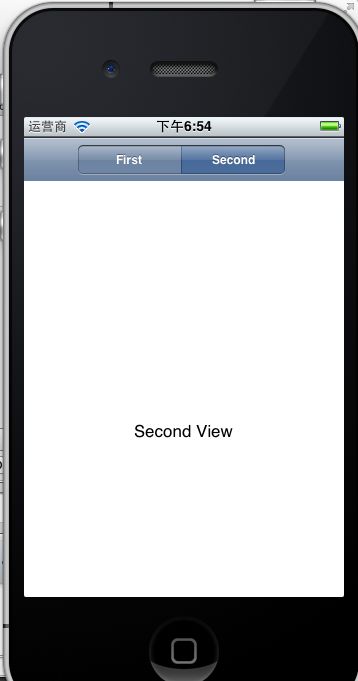- java八股之redis面试题
MinusZXX
八股文-redisjavaredis开发语言面试
目录1、redis是单线程还是多线程2、Redis为什么那么快3、Redis底层数据是如何用跳表来存储的4、RedisKey过期了为什么内存没释放(附删除策略)5、Redis没设置key的过期时间,为什么被Redis主动删除了(淘汰策略)6、Redis主从、哨兵、集群架构优缺点比较7、Redis集群数据分片8、Redis主从切换导致缓存雪崩9、Redis持久化RDB、AOF和混合持久化AOF4.0
- 多学科视角下探索开源&Github、Git初步学习
Bulestar_xx
开源githubgit
Think1.Github作为现今最主流的代码托管平台、协作平台甚至是“社交平台”,本身是闭源的。一方面,它是和大多数开发者连接最紧密的开源阵地,另一方面,拥有传统“黑客精神”的人认为将用户身份绑定这样一个闭源平台上恰恰与开源背道而驰。请从早期自由软件运动与现代开源模式变迁的视角,谈一谈你对上述两种认知的理解。2.在拓展阅读《开放式协作》第二章中国根据用户增长和贡献者增长将所有项目分为了四种类型,
- 神经网络之参数初始化
硬水果糖
人工智能神经网络人工智能深度学习
引言:参数初始化是训练深度神经网络的一个关键步骤,目的是给网络中权重(weights)和偏置(biases)赋予初始值。合适的参数初始化方法有助于提高训练速度、避免梯度消失/爆炸问题,并且加速网络的收敛。一、参数初始化目的避免梯度消失和梯度爆炸:在深度神经网络中,参数初始化对梯度流动非常重要。如果初始权重值太大或太小,可能导致梯度爆炸或梯度消失,从而增加网络的训练难度。加速收敛:良好的初始化可以帮
- C++20 新特性全面解析:从概念到协程的编程革命
小乌龟登顶记
java算法数据结构
一、引言:C++20的里程碑意义2020年发布的C++20标准被公认为继C++11之后最重要的版本更新,带来了4大核心特性和20+项重大改进。这些变革不仅提升了代码表达力,更从根本上改变了C++的编程范式。本文将深入解析C++20的关键特性,并通过实战代码示例演示其应用场景。二、四大核心特性详解2.1概念(Concepts):模板编程的革命基本概念类型约束:通过requires子句限制模板参数类型
- 神经网络基础之正则化
硬水果糖
人工智能神经网络人工智能机器学习
引言:正则化(Regularization)是机器学习中一种用于防止模型过拟合技术。核心思想是通过在模型损失函数中添加一个惩罚项(PenaltyTerm),对模型的复杂度进行约束,从而提升模型在新数据上的泛化能力。一、正则化目的防止过拟合:当模型过于复杂(例如神经网络层数过多、参数过多)时,容易在训练数据上“记忆”噪声或细节,导致在测试数据上表现差。简化模型:正则化通过限制模型参数的大小或数量,迫
- 现代前端开发框架对比:React、Vue 和 Svelte 的选择指南
zhyoobo
vue.jsreact.js前端
引言在当今快速发展的Web开发领域,前端框架的选择往往直接影响项目的开发效率、维护成本和用户体验。React、Vue和Svelte作为当前最受关注的三大框架,各自拥有独特的设计哲学与技术实现。本文将通过5000字的深度解析,从架构设计、开发体验、性能特征到生态系统四个维度进行全方位对比,并针对不同场景提供选型决策框架。无论您是初创团队的技术负责人,还是正在构建企业级应用的架构师,都能在此找到面向2
- 《基于图神经网络的安卓应用检测系统设计与实现》开题报告
大数据蟒行探索者
毕业论文/研究报告神经网络android人工智能机器学习大数据深度学习python
个人主页:@大数据蟒行探索者目录一、课题的研究目的和意义1.研究目的2.研究意义二、国内(外)研究现状及分析1.国内研究现状2.国外研究现状3.研究分析三、课题主要研究内容及可行性分析1.研究内容2.可行性分析四、研究方案和技术途径1.研究方案2.技术途径五、外部条件及解决办法1.开发环境2.解决办法六、主要参考文献一、课题的研究目的和意义1.研究目的随着智能手机的普及,安卓操作系统成为全球最为广
- 【C++】仿函数的概念
无水先生
BOOSTC++c++
目录一、仿函数说明二、仿函数的定义三、更直观的例子四、仿函数实例五、仿函数仿函数(functor)在各编程语言中的应用5.1仿函数C5.2仿函数C++5.3仿函数C#5.4仿函数Java一、仿函数说明在我们写代码时有时会发现有些功能实现的代码,会不断的在不同的成员函数中用到,但是又不好将这些代码独立出来成为一个类的一个成员函数。但是又很想复用这些代码。写一个公共的函数,就要单立出一个函数,也不是很
- uni-app全局弹窗的实现方案
-Dayer-
uni-app前端javascript全局弹窗
背景为了解决uni-app任意位置出现弹窗解决方案一、最初方案受限于uni-app调用组件需要每个页面都引入注册才可以使用,此方案繁琐,每个页面都要写侵入性比较强二、改进方案app端:新建一个页面进行跳转,可以实现伪弹窗(其实是打开一个背景透明的页面)web端:全局挂载body插入一个弹窗三、初步实现方案就是利用条件编译,web端写组件、app端写页面,利用不同的生命周期,完成通用的逻辑四、详细实
- 【高考志愿】数学
大雨淅淅
程序人生高考
目录一、数学专业概述1.1学科特点1.2课程设置1.3学习方法1.4数学专业的分类二、就业前景三、填报建议四、注意事项五、数学专业排名一、数学专业概述1.1学科特点数学专业作为一门基础学科,具有高度的抽象性、逻辑性和精确性。它要求学生具备良好的数学基础、逻辑思维能力和解决问题的能力。因此,选择数学专业的学生需要有较强的数学兴趣和扎实的数学基础。1.2课程设置数学专业的课程设置通常包括数学分析、高等
- 深入浅出JVM(一)---两种环境
杨洪波
Javajvmjavaclassapi语言引擎
如果你想真正掌握JAVA技术,请首先记住它的四个组成部分:JAVA语言,class文件格式,JVM和JAVAAPI.如果你说你学过JAVA,那么,你已经知道了,JAVA有两个环境:编译环境和运行环境.好,我们分别讨论.1)编译环境编译环境是什么?如果你装了JDK,那么,你的D:/j2sdk1.4.2目录下的所有东西,就是你的JAVA编译环境.编译环境的工作流程如下:你利用JAVA语言规范,或利用J
- 【项目实战】—— 高并发内存池
Ryan.Alaskan Malamute
开发语言c++高并发内存池缓存
文章目录什么是高并发内存池?项目介绍一、项目背景二、项目目标三、核心组件四、关键技术五、应用场景六、项目优势什么是高并发内存池? 高并发内存池是一种专门设计用于高并发环境下的内存管理机制。它的原型是Google的一个开源项目tcmalloc,全称Thread-CachingMalloc,实现了高效的多线程内存管理,用于替换系统的内存分配相关函数malloc和free。 在高并发系统中,大量的线
- 大数据和人工智能概念全面解析
就犯得上方法
一、大数据和人工智能大数据是伴随着信息数据爆炸式增长和网络计算技术迅速发展而兴起的一个新型概念。根据麦肯锡全球研究所的定义,大数据是一种规模大到在获取、存储、管理、分析方面大大超出了传统数据库软件工具能力范围的数据集合,具有海量的数据规模、快速的数据流转、多样的数据类型和价值密度低四大特征。大数据能够帮助各行各业的企业从原本毫无价值的海量数据中挖掘出用户的需求,使数据能够从量变到质变,真正产生价值
- Java之ArrayList
M(菜鸡)
javalist
ArrayList1.1ArrayList简介ArrayList的底层是数组队列,相当于动态数组。与Java中的数组相比,它的容量能动态增长。在添加大量元素前,应用程序可以使用ensureCapacity操作来增加ArrayList实例的容量。这可以减少递增式再分配的数量。ArrayList继承了AbstractList,实现了List,RandomAccess,Cloneable,java.io
- 参加AIGC四级考试的,建议先看下我的备考经验
Tester_孙大壮
AI培训师AIGC
写在前面这是我2024年末看到AI快速发展,自己也想入局AI而准备的一个考试,但是真正考试下来发现这个考试真的特别简单,除了政府补贴,其他可能对自己没有任何的用处,我觉得这个在面试的时候也很难成为一个加分项,但是备考过程中可能会对一些AI的知识有框架式的了解,以下是我的备考经验,希望对你有帮助。我参加的是广州本地宝推荐的人社部AIGC考试。整体而言,考试难度不算特别大。以我的工作年限,符合报考四级
- Python之pip的安装和使用详细教程
叫我技术帝
Pythonpython
我们都知道python有海量的第三方库或者说模块,这些库针对不同的应用,发挥不同的作用。我们在实际的项目中,或多或少的都要使用到第三方库,那么如何将他人的库加入到自己的项目中内呢?打个电话?大哥你好,想用下你那个库,麻烦给邮箱发个源码呗!显然这是个笑话。Python官方的PyPi仓库为我们提供了一个统一的代码托管仓库,所有的第三方库,甚至你自己写的开源模块,都可以发布到这里,让全世界的人分享下载。
- python使用pip安装本地包-Python之pip使用详解|附第三方库安装总结
weixin_37988176
首先简单介绍下pip是什么?pip是python的第三方库管理器,可以根据所开发项目的需要,使用pip相关命令安装不同库。Pyhon3.4以后,pip都默认跟Python一块安装,pip在python安装目录中的位置如下:执行方法:运行【win+R】+cmd,执行pip,查看是否安装成功。(找不到命令,则需要手动添加到环境变量)python官方提供了一个pypi库(https://pypi.org
- kubectl describe pod 命令以及输出详情讲解
Moshow郑锴
CloudDockerKuberneteskubernetes云原生kubectlpoddocker
kubectldescribepod命令格式kubectldescribepod-n:Pod的名称。-n:指定命名空间,默认是当前命名空间。controlplane~✖kubectldescribepodnewpods-dzmkgName:newpods-dzmkgNamespace:defaultPriority:0ServiceAccount:defaultNode:controlplane/
- 【后端】【django】Django 自带的用户系统与 RBAC 机制
患得患失949
django知识数据库sqlitedjango
Django自带的用户系统与RBAC机制Django自带的用户系统(django.contrib.auth)提供了身份验证(Authentication)和权限管理(Authorization),能够快速实现用户管理、权限控制、管理员后台等功能,同时具备RBAC(基于角色的访问控制,Role-BasedAccessControl)的基本实现。本文将详细介绍Django用户系统的功能、管理员账号创建
- DeepSeek爆火,背后模型竟藏着这些秘密!
qq_23519469
ai
DeepSeek是什么来头最近,AI圈可是被一个名字刷爆了屏,那就是DeepSeek!它就像一颗横空出世的超级新星,在全球范围掀起了一阵狂热的追捧潮,这热度,简直了!大家都在疯狂讨论它,各种测评、对比层出不穷。它到底有啥过人之处,能让这么多人都为之疯狂?今天咱就来好好唠唠。DeepSeek,全称杭州深度求索人工智能基础技术研究有限公司,是一家专注于开发先进大语言模型(LLM)和相关技术的企业。它成
- 决策树算法全解析:从零基础到Titanic实战,一文搞定机器学习经典模型
吴师兄大模型
0基础实现机器学习入门到精通算法机器学习决策树人工智能深度学习编程开发语言
Langchain系列文章目录01-玩转LangChain:从模型调用到Prompt模板与输出解析的完整指南02-玩转LangChainMemory模块:四种记忆类型详解及应用场景全覆盖03-全面掌握LangChain:从核心链条构建到动态任务分配的实战指南04-玩转LangChain:从文档加载到高效问答系统构建的全程实战05-玩转LangChain:深度评估问答系统的三种高效方法(示例生成、手
- 基于Docker 搭建Redis三主三从分布式集群
DBA学习之路
dockerredis容器
提示:文章写完后,目录可以自动生成,如何生成可参考右边的帮助文档文章目录前言一、分布式系统规划二、准备配置文件1.创建redis集群目录三、启动Redis容器四、创建分布式系统1.创建集群2.查看节点信息总结前言提示:这里可以添加本文要记录的大概内容:本次搭建的为”三主三从“的分布式系统,分布式系统中节点存放的数据可以是不同的。当有数据写入请求到达分布式系统后,系统会采用虚拟槽分区算法将数据写入相
- 大模型应用编排工具Dify二开之登录Token改造
Daphnis_z
Python开发LLMchatgptpythondockerweb
1.前言dify工作室支持在画布上直接编辑业务流程,通过调用开源大模型可以实现特定场景的业务,而且可以迅速更新发布。因此,某些项目要求在产品里面能够直接编辑dify业务流程,使得现场开发人员能够迅速响应客户需求。另外,方便对dify进行运维,比如更新开源大模型认证信息。环境信息:dify-0.8.3,docker-212.实现思路分析常规的思路有两种:把dify源码迁移到产品中代码改造量大、难度高
- 蓝桥杯练习-3.17
梨绘小棠
蓝桥杯贪心算法c++
蓝桥杯练习-3.17代码练习•旅行家的预算-贪心问题描述一个旅行家想驾驶汽车以最少的费用从一个城市到另一个城市(假设出发时油箱是空的)。给定两个城市之间的距离D1、汽车油箱的容量C(以升为单位)、每升汽油能行驶的距离D2、出发点每升汽油价格P和沿途油站数N(N可以为零),油站i离出发点的距离Di、每升汽油价格Pi(i=1,2,……N)。计算结果四舍五入至小数点后两位。如果无法到达目的地,则输出“N
- SQL优化之MySQL执行计划(Explain)及索引失效详解
一未道
#性能优化大数据sqlmysql数据库
1、执行计划基础1.1、执行计划(Explain)定义在MySQL中可以通过explain关键字模拟优化器执行SQL语句,从而解析MySQL是如何处理SQL语句的。1.2、MySQL查询过程客户端向MySQL服务器发送一条查询请求服务器首先检查查询缓存,如果命中缓存,则立刻返回存储在缓存中的结果。否则进入下一阶段服务器进行SQL解析、预处理、之后由优化器生成对应的执行计划MySQL根据执行计划,调
- 黄河之声杂志黄河之声杂志社黄河之声编辑部2024年第23期目录
QQ296078736
人工智能
原创歌曲复兴之梦张杰文;薛亚东;石静;2杂诗·思乡覃艳;何家国;183我们在一起周敏;184祖国处处好风光马戈;185民族音乐学与传统音乐理论山西戏剧环境下原创音乐剧现状分析及发展思索王景璐;4-9基于音乐分析的聊斋俚曲【叠断桥】溯源研究杨晨宇;10-18从聊城尺八现状看中华优秀传统文化回流现象赵蕊;19-23徽班与徽商解飞;24-27四川白玉县“手指锅庄”艺术特征与传承发展研究李明明;28-31
- HAProxy的ACL
Hurry6
网络服务器运维
访问控制列表(ACL,AccessControlLists)是一种基于包过滤的访问控制技术,它可以根据设定的条件对经过服务器传输的数据包进行过滤(条件匹配),即对接收到的报文进行匹配和过滤,基于请求报文头部中的源地址、源端口、目标地址、目标端口、请求方法、URL、文件后缀等信息内容进行匹配并执行进一步操作,比如允许其通过或丢弃。定义ACL匹配规范,即:判断条件hdrstring,提取在一个HTTP
- Eaglewood-开发单片机函数封装技巧
OverflowSummer
嵌入式泛用知识学习笔记单片机嵌入式硬件
目录一、核心原则:(一)、高内聚低耦合:每个函数只做一件事,减少依赖。(二)、接口清晰:隐藏实现细节。(三)、可配置性:通过宏、结构体或回调支持灵活扩展。(四)、可移植性:抽象硬件差异,降低移植成本。一、模块化设计五、宏定义配置参数二、在头文件中宏定义函数三、使用结构体封装硬件配置四、回调函数机制六、错误处理与返回值封装七、硬件抽象层(HAL)八、静态函数限制作用域九、版本兼容性设计十、使用con
- Mysql相关知识:存储引擎、sql执行流程、索引失效
Cachel wood
sql语言sqlserver+mysqlmysqlsqlandroidab测试算法人工智能前端框架
文章目录MySQL存储引擎一、MySQL存储引擎概述二、常见存储引擎对比三、核心引擎详解1.InnoDB2.MyISAM四、如何选择存储引擎?五、引擎操作命令1.查看表的存储引擎2.修改表的存储引擎3.引擎与性能优化六、示例对比场景:频繁更新的订单表vs只读的产品分类表七、总结索引失效1.索引列使用函数或表达式2.隐式类型转换3.范围查询右侧的索引列失效4.模糊查询以通配符开头5.OR条件导致索引
- Qt实现远程桌面控制
flower980323
qt
QT工程文件中添加axcontainer模块放一个QAxWidget到UI中,双击放入的控件,选择MicrosoftRDPClientControl-version10,完成后,控件会有绿色虚线覆盖设置属性//头文件#include#includeui.axWidget->setProperty("Server","192.168.11.184");//远程连接IPui.axWidget->set
- linux系统服务器下jsp传参数乱码
3213213333332132
javajsplinuxwindowsxml
在一次解决乱码问题中, 发现jsp在windows下用js原生的方法进行编码没有问题,但是到了linux下就有问题, escape,encodeURI,encodeURIComponent等都解决不了问题
但是我想了下既然原生的方法不行,我用el标签的方式对中文参数进行加密解密总该可以吧。于是用了java的java.net.URLDecoder,结果还是乱码,最后在绝望之际,用了下面的方法解决了
- Spring 注解区别以及应用
BlueSkator
spring
1. @Autowired
@Autowired是根据类型进行自动装配的。如果当Spring上下文中存在不止一个UserDao类型的bean,或者不存在UserDao类型的bean,会抛出 BeanCreationException异常,这时可以通过在该属性上再加一个@Qualifier注解来声明唯一的id解决问题。
2. @Qualifier
当spring中存在至少一个匹
- printf和sprintf的应用
dcj3sjt126com
PHPsprintfprintf
<?php
printf('b: %b <br>c: %c <br>d: %d <bf>f: %f', 80,80, 80, 80);
echo '<br />';
printf('%0.2f <br>%+d <br>%0.2f <br>', 8, 8, 1235.456);
printf('th
- config.getInitParameter
171815164
parameter
web.xml
<servlet>
<servlet-name>servlet1</servlet-name>
<jsp-file>/index.jsp</jsp-file>
<init-param>
<param-name>str</param-name>
- Ant标签详解--基础操作
g21121
ant
Ant的一些核心概念:
build.xml:构建文件是以XML 文件来描述的,默认构建文件名为build.xml。 project:每个构建文
- [简单]代码片段_数据合并
53873039oycg
代码
合并规则:删除家长phone为空的记录,若一个家长对应多个孩子,保留一条家长记录,家长id修改为phone,对应关系也要修改。
代码如下:
- java 通信技术
云端月影
Java 远程通信技术
在分布式服务框架中,一个最基础的问题就是远程服务是怎么通讯的,在Java领域中有很多可实现远程通讯的技术,例如:RMI、MINA、ESB、Burlap、Hessian、SOAP、EJB和JMS等,这些名词之间到底是些什么关系呢,它们背后到底是基于什么原理实现的呢,了解这些是实现分布式服务框架的基础知识,而如果在性能上有高的要求的话,那深入了解这些技术背后的机制就是必须的了,在这篇blog中我们将来
- string与StringBuilder 性能差距到底有多大
aijuans
之前也看过一些对string与StringBuilder的性能分析,总感觉这个应该对整体性能不会产生多大的影响,所以就一直没有关注这块!
由于学程序初期最先接触的string拼接,所以就一直没改变过自己的习惯!
- 今天碰到 java.util.ConcurrentModificationException 异常
antonyup_2006
java多线程工作IBM
今天改bug,其中有个实现是要对map进行循环,然后有删除操作,代码如下:
Iterator<ListItem> iter = ItemMap.keySet.iterator();
while(iter.hasNext()){
ListItem it = iter.next();
//...一些逻辑操作
ItemMap.remove(it);
}
结果运行报Con
- PL/SQL的类型和JDBC操作数据库
百合不是茶
PL/SQL表标量类型游标PL/SQL记录
PL/SQL的标量类型:
字符,数字,时间,布尔,%type五中类型的
--标量:数据库中预定义类型的变量
--定义一个变长字符串
v_ename varchar2(10);
--定义一个小数,范围 -9999.99~9999.99
v_sal number(6,2);
--定义一个小数并给一个初始值为5.4 :=是pl/sql的赋值号
- Mockito:一个强大的用于 Java 开发的模拟测试框架实例
bijian1013
mockito单元测试
Mockito框架:
Mockito是一个基于MIT协议的开源java测试框架。 Mockito区别于其他模拟框架的地方主要是允许开发者在没有建立“预期”时验证被测系统的行为。对于mock对象的一个评价是测试系统的测
- 精通Oracle10编程SQL(10)处理例外
bijian1013
oracle数据库plsql
/*
*处理例外
*/
--例外简介
--处理例外-传递例外
declare
v_ename emp.ename%TYPE;
begin
SELECT ename INTO v_ename FROM emp
where empno=&no;
dbms_output.put_line('雇员名:'||v_ename);
exceptio
- 【Java】Java执行远程机器上Linux命令
bit1129
linux命令
Java使用ethz通过ssh2执行远程机器Linux上命令,
封装定义Linux机器的环境信息
package com.tom;
import java.io.File;
public class Env {
private String hostaddr; //Linux机器的IP地址
private Integer po
- java通信之Socket通信基础
白糖_
javasocket网络协议
正处于网络环境下的两个程序,它们之间通过一个交互的连接来实现数据通信。每一个连接的通信端叫做一个Socket。一个完整的Socket通信程序应该包含以下几个步骤:
①创建Socket;
②打开连接到Socket的输入输出流;
④按照一定的协议对Socket进行读写操作;
④关闭Socket。
Socket通信分两部分:服务器端和客户端。服务器端必须优先启动,然后等待soc
- angular.bind
boyitech
AngularJSangular.bindAngularJS APIbind
angular.bind 描述: 上下文,函数以及参数动态绑定,返回值为绑定之后的函数. 其中args是可选的动态参数,self在fn中使用this调用。 使用方法: angular.bind(se
- java-13个坏人和13个好人站成一圈,数到7就从圈里面踢出一个来,要求把所有坏人都给踢出来,所有好人都留在圈里。请找出初始时坏人站的位置。
bylijinnan
java
import java.util.ArrayList;
import java.util.List;
public class KickOutBadGuys {
/**
* 题目:13个坏人和13个好人站成一圈,数到7就从圈里面踢出一个来,要求把所有坏人都给踢出来,所有好人都留在圈里。请找出初始时坏人站的位置。
* Maybe you can find out
- Redis.conf配置文件及相关项说明(自查备用)
Kai_Ge
redis
Redis.conf配置文件及相关项说明
# Redis configuration file example
# Note on units: when memory size is needed, it is possible to specifiy
# it in the usual form of 1k 5GB 4M and so forth:
#
- [强人工智能]实现大规模拓扑分析是实现强人工智能的前奏
comsci
人工智能
真不好意思,各位朋友...博客再次更新...
节点数量太少,网络的分析和处理能力肯定不足,在面对机器人控制的需求方面,显得力不从心....
但是,节点数太多,对拓扑数据处理的要求又很高,设计目标也很高,实现起来难度颇大...
- 记录一些常用的函数
dai_lm
java
public static String convertInputStreamToString(InputStream is) {
StringBuilder result = new StringBuilder();
if (is != null)
try {
InputStreamReader inputReader = new InputStreamRead
- Hadoop中小规模集群的并行计算缺陷
datamachine
mapreducehadoop并行计算
注:写这篇文章的初衷是因为Hadoop炒得有点太热,很多用户现有数据规模并不适用于Hadoop,但迫于扩容压力和去IOE(Hadoop的廉价扩展的确非常有吸引力)而尝试。尝试永远是件正确的事儿,但有时候不用太突进,可以调优或调需求,发挥现有系统的最大效用为上策。
-----------------------------------------------------------------
- 小学4年级英语单词背诵第二课
dcj3sjt126com
englishword
egg 蛋
twenty 二十
any 任何
well 健康的,好
twelve 十二
farm 农场
every 每一个
back 向后,回
fast 快速的
whose 谁的
much 许多
flower 花
watch 手表
very 非常,很
sport 运动
Chinese 中国的
- 自己实践了github的webhooks, linux上面的权限需要注意
dcj3sjt126com
githubwebhook
环境, 阿里云服务器
1. 本地创建项目, push到github服务器上面
2. 生成www用户的密钥
sudo -u www ssh-keygen -t rsa -C "
[email protected]"
3. 将密钥添加到github帐号的SSH_KEYS里面
3. 用www用户执行克隆, 源使
- Java冒泡排序
蕃薯耀
冒泡排序Java冒泡排序Java排序
冒泡排序
>>>>>>>>>>>>>>>>>>>>>>>>>>>>>>>>>>
蕃薯耀 2015年6月23日 10:40:14 星期二
http://fanshuyao.iteye.com/
- Excle读取数据转换为实体List【基于apache-poi】
hanqunfeng
apache
1.依赖apache-poi
2.支持xls和xlsx
3.支持按属性名称绑定数据值
4.支持从指定行、列开始读取
5.支持同时读取多个sheet
6.具体使用方式参见org.cpframework.utils.excelreader.CP_ExcelReaderUtilTest.java
比如:
Str
- 3个处于草稿阶段的Javascript API介绍
jackyrong
JavaScript
原文:
http://www.sitepoint.com/3-new-javascript-apis-may-want-follow/?utm_source=html5weekly&utm_medium=email
本文中,介绍3个仍然处于草稿阶段,但应该值得关注的Javascript API.
1) Web Alarm API
&
- 6个创建Web应用程序的高效PHP框架
lampcy
Web框架PHP
以下是创建Web应用程序的PHP框架,有coder bay网站整理推荐:
1. CakePHP
CakePHP是一个PHP快速开发框架,它提供了一个用于开发、维护和部署应用程序的可扩展体系。CakePHP使用了众所周知的设计模式,如MVC和ORM,降低了开发成本,并减少了开发人员写代码的工作量。
2. CodeIgniter
CodeIgniter是一个非常小且功能强大的PHP框架,适合需
- 评"救市后中国股市新乱象泛起"谣言
nannan408
首先来看百度百家一位易姓作者的新闻:
三个多星期来股市持续暴跌,跌得投资者及上市公司都处于极度的恐慌和焦虑中,都要寻找自保及规避风险的方式。面对股市之危机,政府突然进入市场救市,希望以此来重建市场信心,以此来扭转股市持续暴跌的预期。而政府进入市场后,由于市场运作方式发生了巨大变化,投资者及上市公司为了自保及为了应对这种变化,中国股市新的乱象也自然产生。
首先,中国股市这两天
- 页面全屏遮罩的实现 方式
Rainbow702
htmlcss遮罩mask
之前做了一个页面,在点击了某个按钮之后,要求页面出现一个全屏遮罩,一开始使用了position:absolute来实现的。当时因为画面大小是固定的,不可以resize的,所以,没有发现问题。
最近用了同样的做法做了一个遮罩,但是画面是可以进行resize的,所以就发现了一个问题,当画面被reisze到浏览器出现了滚动条的时候,就发现,用absolute 的做法是有问题的。后来改成fixed定位就
- 关于angularjs的点滴
tntxia
AngularJS
angular是一个新兴的JS框架,和以往的框架不同的事,Angularjs更注重于js的建模,管理,同时也提供大量的组件帮助用户组建商业化程序,是一种值得研究的JS框架。
Angularjs使我们可以使用MVC的模式来写JS。Angularjs现在由谷歌来维护。
这里我们来简单的探讨一下它的应用。
首先使用Angularjs我
- Nutz--->>反复新建ioc容器的后果
xiaoxiao1992428
DAOmvcIOCnutz
问题:
public class DaoZ {
public static Dao dao() { // 每当需要使用dao的时候就取一次
Ioc ioc = new NutIoc(new JsonLoader("dao.js"));
return ioc.get(







